What is Prostatitis is many representatives of the male sex know. The disease will urinate frequent urge to pain, violation of the erection, and other symptoms, note on the pathology of the genitourinary system. For a more accurate diagnosis, the consultation requires urologa to find out the cause of the disease and explains what the disease is, it means what the title, what are the symptoms and the treatment.
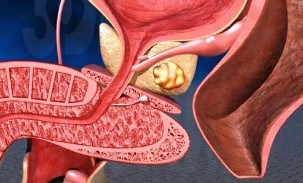
Functions of the prostate
The prostate gland unpaired Organ consisting of glands of the body, and fibrinogen-skeleton-foil in the front pelvic area. The upper part is in contact with the bubble, back with the rectum, and the Front to the pubic bone.
The main purpose of the prostate – selection a special secret, the sperms vitality and agility.
This substance is produced in acinus – the small discs, surrounded by the muscle membrane.
Among the other functions of the prostate gland:
- Protection against unwanted urination;
- The prevention of the casting of ejaculate into the bladder;
- Prevention of infections of the upper sections of the urinary tract (kidneys, ureter).
The work of the prostate, androgens, estrogens, steroids, and hormones of the pituitary gland control.
Description of the disease
The male prostate gland (Prostatitis – the erroneous spelling) is a widespread disease of the prostate accompanied by inflammation, injury, urination, and sexual disorders. The swelling causes a narrowing of the ducts of the prostate that interferes with the normal outflow of prostate juice and provoked traffic jams.
The most common disease of the prostate in men diagnosed at the age of 25 – 50 years. Sometimes, the pathology of power sooner or later.
Causes
Prostatitis in men develops due to the following reasons:
- Non-transferable. Mostly to the deterioration of the prostate, the violation of the blood flow and lymph flow in the prostate, but also traffic jams, the rare ejaculation leads. Sometimes, pathology develops because of the frequent sexual contacts or regular shocks (e.g. in the case of motorcycle riders).
- Infectious. Inflammation of the prostate gland develops on the background of the penetration of the infection. This can include a.bacteria, viruses, or fungi in the prostate through the bloodstream or the lymph from the urethra or remote infected sources (neck, teeth, sinuses)
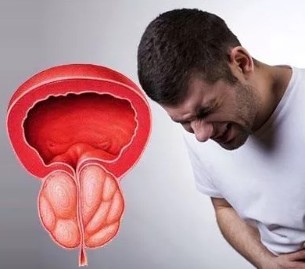
The factors triggering are of Prostatitis in men:
- Under cooling;
- Injuries;
- genetic predisposition;
- inactive style or regular physical exhaustion of life;
- regular Stress;
- bad habits;
- poor diet;
- Insomnia, constant lack of sleep;
- weak immune system;
- chronic infectious processes;
- the tooth decay.
The main cause of the disease is regarded as a violation of the outflow of capillary blood, which leads to Stagnation, decline in local immunity and reproduction of the bacterial flora.
The impact of unfavorable factors aggravated the inflammation of the prostate, extends the duration of the treatment and promotes the development of complications.
Types and symptoms
Inflammatory process of the prostate manifested:
- Pain in the pelvic area (in the case of outflow of urine, semen, stools);
- increased urgency to urinate urgency;
- Discharge of blood, mucus, pus from the urethra;
- Turbidity in the urine;
- decreased Libido and other ailments.
The severity of clinical symptoms depends on the cause and Form of the disease.
Sharp
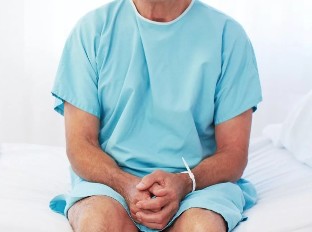
An acute inflammation of the prostate gland, usually accompanied by elevated body temperature (axillary, rectal) and signs of intoxication (headache and joint pain, chills, nausea).
Sick prostate compresses the surrounding tissue, nerves and provokes:
- Constipation;
- Violation of urination, up to the complete termination of the outflow of urine;
- Pain in the lumbar area, the scrotum, groin.
Acute Prostatitis is more common in men appears against the background of an infection of the prostate disease-causing organisms.
Important! Sometimes an acute inflammation of the prostate appears against the background of the performed a biopsy the day before.
Chronic
Inflammation of the prostate often reveal happened to be at a scheduled inquiry or investigation of other diseases.
The Progression of the disease leads to disruption of the morphology and function of the prostate gland, which shows:
- Pain;
- Dysuria;
- sexual disorders.
Calculous
This is one of the most common complications of the chronic Form of the disease characterized by the formation of stones in the acinus.
How is the affected prostate gland in men, which was calculous inflammation is dependent on the severity. The main clinical signs distinguish dull nagging pain in the groin, pubis and testicles.
The prolonged absence of the treatment is fraught with the development of inflammation of the seminal vesicle, abscess of the prostate gland, sclerosis of the prostate.
Stagnant
What disease Prostatitis and why it develops, don't know all the representatives of the male sex.
This type is prone to people who:
- little move;
- bad habits have;
- accustomed to the largest part of the day is spend sitting;
- do not lead life in a regular sex;
- interrupted sexual intercourse practice.
Symptoms in an inflammation of the prostate against the background of Stagnation is identical with the manifestations and chronic calculous forms of the disease, allowing for a more accurate diagnosis is necessary laboratory and instrumental diagnostics. The first character, which is manifested congestive Prostatitis in men is the deterioration of erection.
Infectious
The cause of the disease is clear from the title. The most common prostate bacteria infect, rarely, viruses and fungi. In most cases, infectious-inflammatory process of the prostate is a complication of other forms.
To him will be the reduction in the General or local immunity in the background:
- Under cooling;
- other acute or chronic infections;
- Cancer-Tumors;
- Auto-immune diseases;
- Disorders of the neighboring organs;
- wrong habits of life.
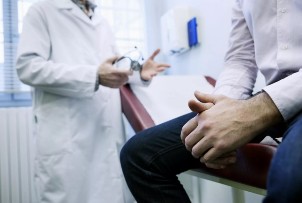
As the prostate gland in men, the inflammation was infectious type, depends on the course of the disease. Often complaints are similar to the symptoms of acute or chronic Prostatitis.
Purulent
In advanced cases in the pathological process involved the entire body.
Early (blue tongue disease) Form of the suppurative inflammation extends to the deleted symptoms and similar to the symptoms of the disease of the urinary bladder – cystitis. With the progression of pain amplified and appear pronounced signs of intoxication.
Erysipelas abscessed the most severe Form of the disease, and often leads to peritonitis, Sepsis and death.
Diagnosis
In the primary treatment of gland examine through the rectum. During Palpation the physician the size, the structure and the contours of the body determined.
In this Phase, a preliminary diagnosis to be confirmed, with the help of the survey, the following laboratory methods:
- a biochemical analysis of the blood;
- the determination of the PSA (prostate specific Antigen);
- clinical and bacteriological examination of the urine, prostate secretions, swabs from the urethra;
- Sensitivity to the antibiotics;
- spermogrammu;
- the identification of C-reactive Protein;
- Cystoscopy and histology puncture content.
The Instrumental used:
- rectal sonography;
- CT or MRI of the prostate and other organs of the pelvis;
- be biopsied.
The diagnosis of the disease is done in public or private laboratories.
Principles of treatment
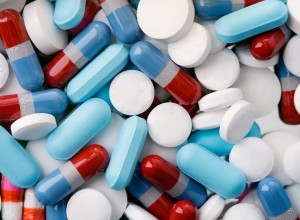
To handle where, and how inflammation of the prostate, the doctor decides according to the results of the analyses. If the patient's condition is satisfactory, the you can do, visit to the outpatient clinic, and home taking medication. In the opposite case, the doctor, the risks associated with the disease explained to the man, and the institution of treatment. In severe cases, the Patient in the hospital is particularly.
Complex
The conservative therapy includes the intake of drugs that eliminated the cause of the disease, congestion and inflammation in the prostate.
In this list include:
- Antibiotics (depending on the results of antibiotics grams);
- anti-inflammatory Steroid agent does not origin or corticosteroids;
- Immune modulators;
- Vitamins and minerals;
- vasodilator drugs (in the absence of contraindications).
In the case of severe pain prescribe analgesics or antispasmodics.
After elimination of the acute Phase of the return to the therapeutic methods of the handle to the physio:
- Massage of the prostate gland;
- further electrophoresis was;
- Microwave Therapy;
- Ultrasound.
In severe cases, partial or complete prostatectomy (removal of the prostate) can. Prostatitis, stones is treated on the same pattern, but Massage of the Androgen-dependent Organ, is absolutely contraindicated.
Home
What Prostatitis is and how you treat them, want to know a lot of men. An outpatient treatment is not completed emergency hospitalization in a hospital, you must treat all of the recommendations of the doctor: drink prescribed pills, avoidance of triggering factors and not themselves. In addition to the basic therapeutic scheme is helpful healing herbs, the doctor will choose.
For the elimination of the disease is helpful:
- Chamomile;
- Peony;
- Seeds and leaves of the plantain;
- Nettle;
- Burdock root;
- Pumpkin seeds.

Prevention
The best prevention of Prostatitis in men – regularly salutation to the doctor, and the correction of way of life, which includes:
- daily physical activity;
- regular Sex;
- the proper diet;
- Get enough sleep.
Stress, bad habits and other triggering factors, on the contrary, should be deleted. Prostatitis in men can often erectile dysfunction.
In order to eliminate the disease, prescribe drugs from the group of PDE-5 inhibitors. If this does not help, then the consultation of the psychologist requires.






































